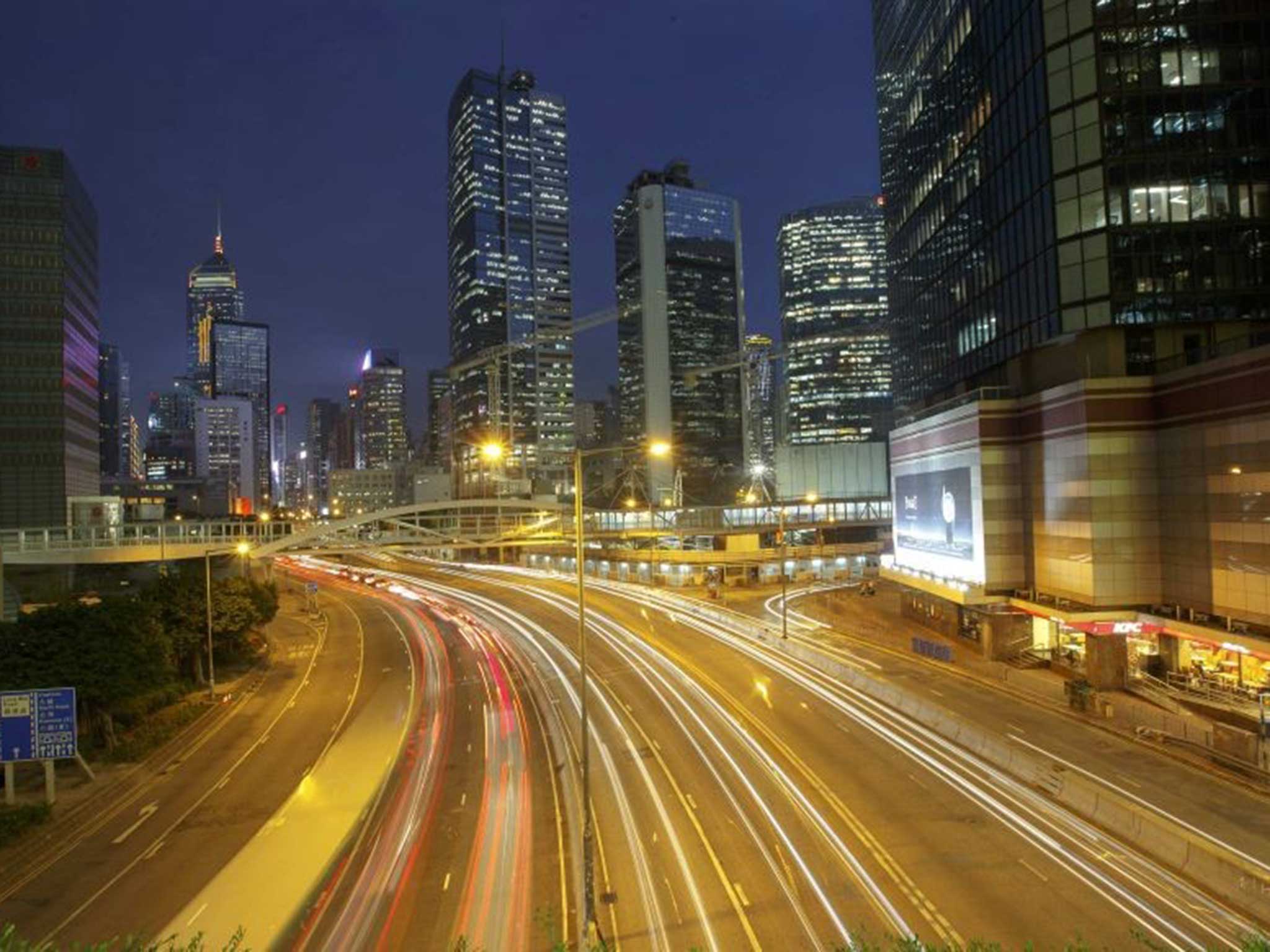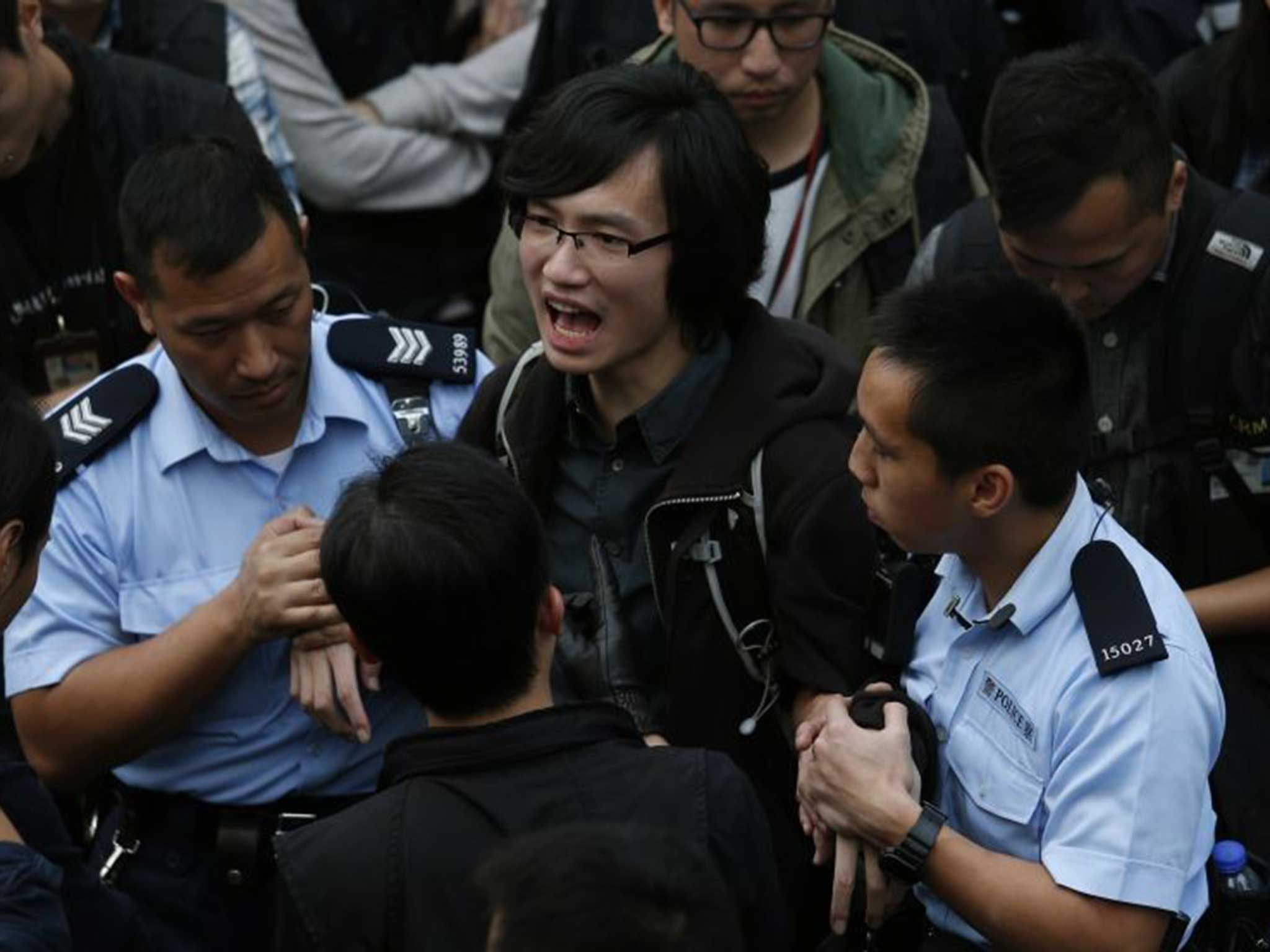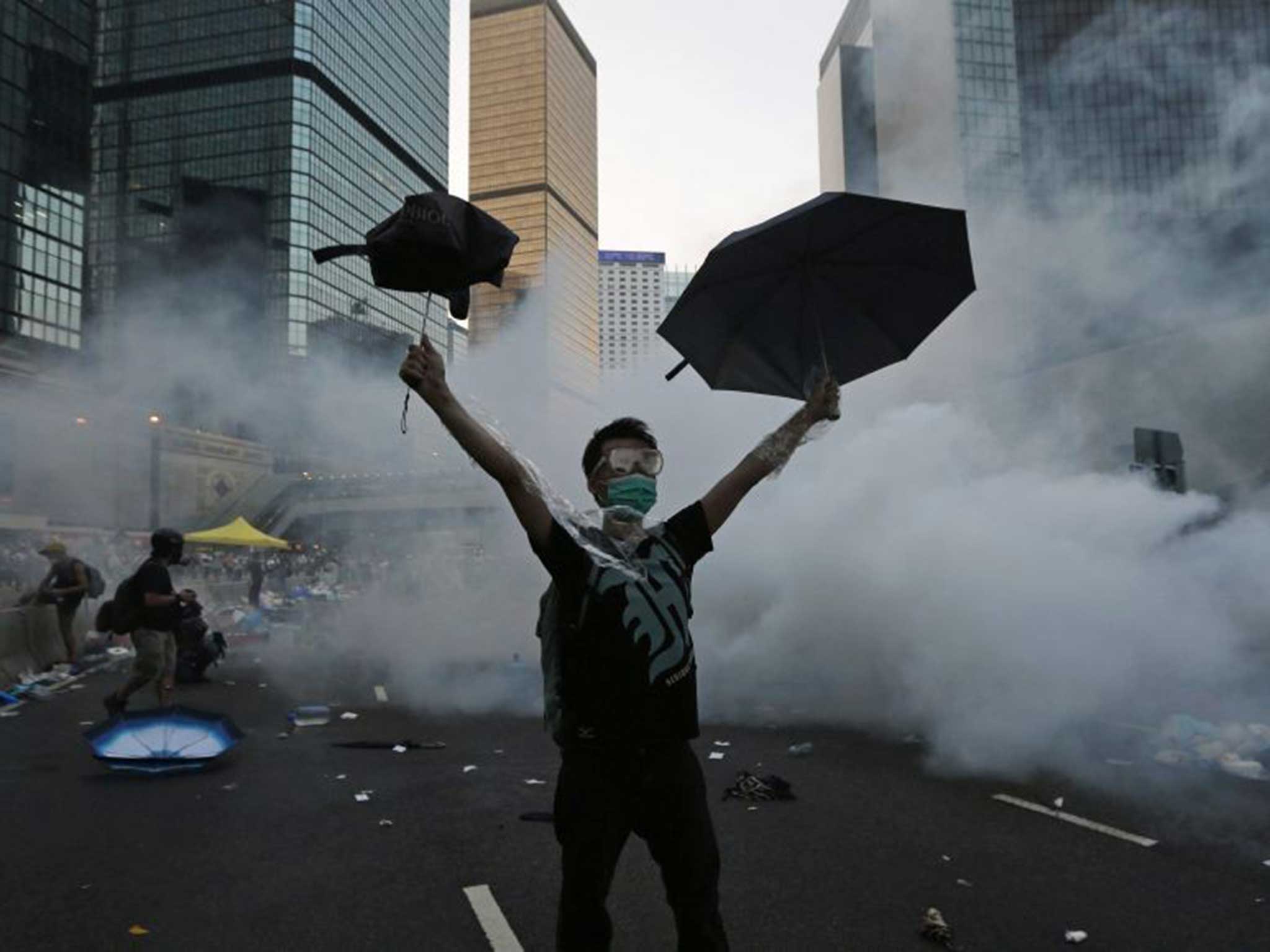Hong Kong's protest movement opens a door that won't be closed
Three occupations, 900 arrests and 87 tear gas canisters later, it may not have achieved its stated aim - the free election of its leadership - but the months-long pro-democracy campaign has ignited public interest in politics

Your support helps us to tell the story
From reproductive rights to climate change to Big Tech, The Independent is on the ground when the story is developing. Whether it's investigating the financials of Elon Musk's pro-Trump PAC or producing our latest documentary, 'The A Word', which shines a light on the American women fighting for reproductive rights, we know how important it is to parse out the facts from the messaging.
At such a critical moment in US history, we need reporters on the ground. Your donation allows us to keep sending journalists to speak to both sides of the story.
The Independent is trusted by Americans across the entire political spectrum. And unlike many other quality news outlets, we choose not to lock Americans out of our reporting and analysis with paywalls. We believe quality journalism should be available to everyone, paid for by those who can afford it.
Your support makes all the difference.Rush hour traffic whizzed along Harcourt Road on Hong Hong island yesterday morning, after the tent city which had filled it for 75 days was cleared away by police.
But beneath the lorries and taxis, the bitumen was still covered with graffiti left by pro-democracy protesters. The biggest message was daubed in yellow, and read: “We’ll be back!”
The first chapter in this struggle is over, but the winners and losers of a clash that shook the former British colony’s political landscape here more than anything in a generation remain unclear.
“We have achieved nothing. Period,” said Sam Lock Cheung, a 25-year-old English teacher and a regular at the Mong Kok protests on Kowloon, who has become increasingly frustrated with the non-violent methods of the movement’s loosely-defined leadership.

And in one sense he’s spot on. The protest’s central goal – open nomination in the election of the city’s next leader – is no closer to realisation. The most the protesters got was a two-hour televised discussion between student leaders and city officials, which led nowhere. Both China’s and Hong Kong’s governments have stonewalled their demands, and repeatedly denounced the occupations as illegal.
Others though, while admitting the lack of any tangible gain, reckon there’s more to it than that.
Until very recently there was a long-held view that Hong Kongers were a politically supine people who didn’t care who was in charge as long as they were making money and the trains ran on time. But three occupations, 900 arrests and 87 tear gas canisters later, that view seems fairly quaint, if not utterly false.
Jordan Ho, an IT worker and another Mong Kok regular, said: “Before 1997 the British Hong Kong government was in charge of the political arena. Hong Kongers didn’t bother with political affairs. And that didn’t change much [after the handover]. This is the first time that most Hong Kongers are aware that they have to participate and take back that area.
“Yeah sure, the government didn’t change anything. But I think the movement has changed the landscape of Hong Kong forever. Hong Kong will not be the same again, that’s for sure.”
Some were still gathered yesterday at the protesters’ final redoubt: the one remaining occupation in Causeway Bay. It’s much smaller than the two former sites at Admiralty and Mong Kok, and has seen less drama. It is expected to be cleared on Monday.
There, clearing up plastic bottles for recycling, was Chang Lap-pan, who works for a local NGO. He agreed that his fellow Hong Kongers have woken up to something new which won’t go away.
He said: “If you wake up you are never asleep again. [Hong Kongers] now know how their lives are affected by the unjust political structure. They will see some new hope that we can have some change in our lives.”
Mr Chang said he’d been at the site on most of the 76 days it has been there, helping with the running of the camp. And like thousands of his comrades, he’s learned skills over the past few months which won’t go away quickly. He said: “We have learned how to protest, I guess.

“Originally we simply followed all the old rules, and that puts no pressure on the government. We now understand and know more about democracy.”
At the protests’ outset, one of its most startling aspects was just how organised everyone was.
They had to move thousands of tents, water bottles and food boxes. They organised using off-grid messaging apps to avoid government snoopers, and set up huge communities online for quick organisation in emergencies. They kept a healthy supply of hard hats, umbrellas and face masks for repelling police incursions into their territory.
That’s before you mention the free library, the bike-powered mobile phone chargers and even an organic vegetable patch.
Hong Kong now has, hidden in plain sight, a huge, connected volunteer army which has proved itself capable of choking its busiest roads quickly and durably. As the political struggle goes on, this fact will linger in the minds of politicians and police commanders alike.
At the mention of Leung Chun-ying, the city’s current leader, the 24-year-old just laughed – with genuine mirth rather than derision. Mr Leung has borne the brunt of civic dissatisfaction, for his aloof and rigid attitude to the protests. There may be no real winner at this juncture, but he may be a loser, having become something of a pantomime villain for the pro-democracy activists. He has faced numerous calls to resign, although his ultimate employer – the Chinese Communist Party – has backed him thus far. He has featured in countless derogatory (and sometimes obscene) works of art at protest camps. In some he had vampire fangs, in others a Hitler moustache.
But Mr Leung’s image hasn’t taken as big a battering as that of the Hong Kong Police. Since they were criticised for hurling tear gas at initial peaceful protests in September, officers have been filmed allegedly beating a handcuffed and prostrate social worker, and photographed gouging the eyes of a photographer.
While it can hardly have been the protesters’ aim from the start, one of the side-effects of the political crisis has been to expose the police and government to local and international scrutiny – under which they have not always looked good.

One Causeway Bay protester, who gave his name only as Lee W, said: “It was proclaimed as the best force in Asia, but it turned out exactly the opposite.”
But the police have their supporters. The so-called “Blue Ribbons” came out now and again during the protests to cheer on officers and variously boo and denounce activists, and are another unintended consequence of the recent civil disobedience. Towards the end, the occupiers’ tactics grated on many locals, to the point that carrying on may well have been counterproductive.
Senior superintendent Kong Man-keung, of the police’s public relations branch, recently claimed the force had received more than 17,000 emails from members of the public backing its approach to the occupations.
The political crisis remains, and may wear on until the next election for chief executive in 2017. But the genie is out the bottle, and what was a niche topic for political nerds has dominated a city’s conversations for almost three months. The occupiers may not have got what they wanted – and maybe they never will – but Hong Kong and its politics have been changed forever.
Join our commenting forum
Join thought-provoking conversations, follow other Independent readers and see their replies
Comments